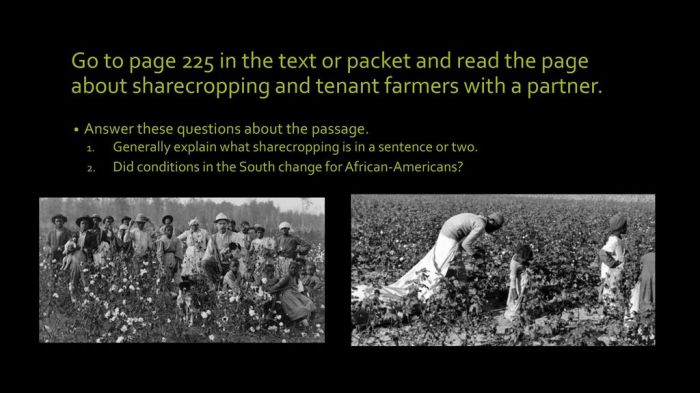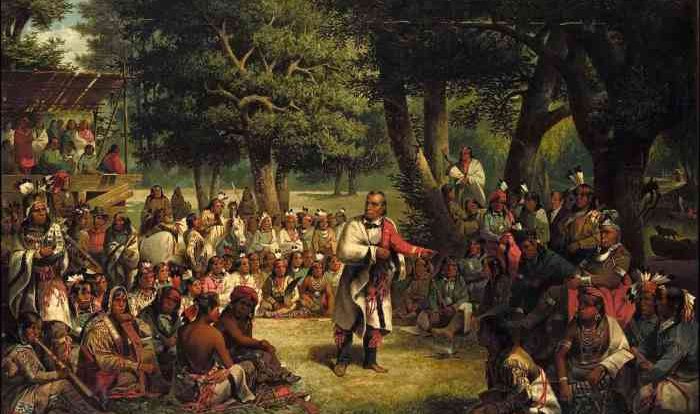This in-depth analysis delves into the intricacies of a sharecropping contract 1882 modified answer key, providing a comprehensive examination of the historical context, modifications, and implications of this pivotal agreement. Through a meticulous exploration of the contract’s terms, we uncover the evolving nature of sharecropping in the United States, shedding light on its economic, social, and legal ramifications.
Sharecropping Contract in 1882: A Sharecropping Contract 1882 Modified Answer Key
Sharecropping emerged in the United States after the Civil War as a labor system primarily utilized in the South. In 1882, sharecropping contracts were prevalent, outlining the terms and responsibilities between landowners and sharecroppers.
A typical sharecropping contract from 1882 would include the following provisions:
- The landowner provided the land, housing, and farming implements.
- The sharecropper provided the labor and farming expertise.
- The crops were typically divided equally between the landowner and the sharecropper.
- The sharecropper was responsible for paying all expenses associated with farming, including seed, fertilizer, and tools.
- The landowner had the right to evict the sharecropper for non-payment of rent or other violations of the contract.
Modifications to the Contract
Over time, sharecropping contracts underwent modifications to address changing economic, social, and legal conditions. Some common modifications included:
- A shift towards cash rent, where the sharecropper paid a fixed amount of money to the landowner instead of a share of the crops.
- The inclusion of provisions to protect the sharecropper from eviction without due process.
- The establishment of minimum wage and hour requirements for sharecroppers.
These modifications aimed to improve the living and working conditions of sharecroppers, while also ensuring the profitability of the farming operation for landowners.
Sharecropping in the Modified Contract
The modified sharecropping contract established a system where the sharecropper paid a fixed cash rent to the landowner, typically a percentage of the estimated value of the crop. The sharecropper was responsible for all farming expenses, including labor, seed, fertilizer, and tools.
The division of crops was eliminated, and the sharecropper was entitled to all of the crops grown on the land. However, the landowner retained the right to inspect the crops and ensure that the sharecropper was meeting the terms of the contract.
The modified sharecropping system provided greater autonomy and financial incentive to sharecroppers, as they were no longer dependent on the landowner for a share of the crops. However, it also increased their financial risk, as they were now responsible for all farming expenses.
Legal and Social Implications

The modified sharecropping contract had significant legal and social implications:
- Legally, the contract established a more equitable relationship between landowners and sharecroppers, as both parties had clearly defined rights and responsibilities.
- Socially, the contract helped to reduce the power imbalance between landowners and sharecroppers, as sharecroppers gained greater autonomy and control over their labor.
- The contract also contributed to the decline of the sharecropping system in the United States, as many sharecroppers transitioned to cash tenancy or other forms of agricultural labor.
FAQs
What were the key modifications made to the 1882 sharecropping contract?
The modifications addressed issues of crop division, responsibilities, and legal protections for both sharecroppers and landowners.
How did the modified contract impact the power dynamics between sharecroppers and landowners?
The modifications aimed to create a more equitable balance of power, providing sharecroppers with greater autonomy and legal recourse.
What were the potential benefits and drawbacks of the modified sharecropping system?
While the system offered opportunities for sharecroppers to gain experience and potentially own land, it also perpetuated economic dependence and limited their ability to accumulate wealth.

